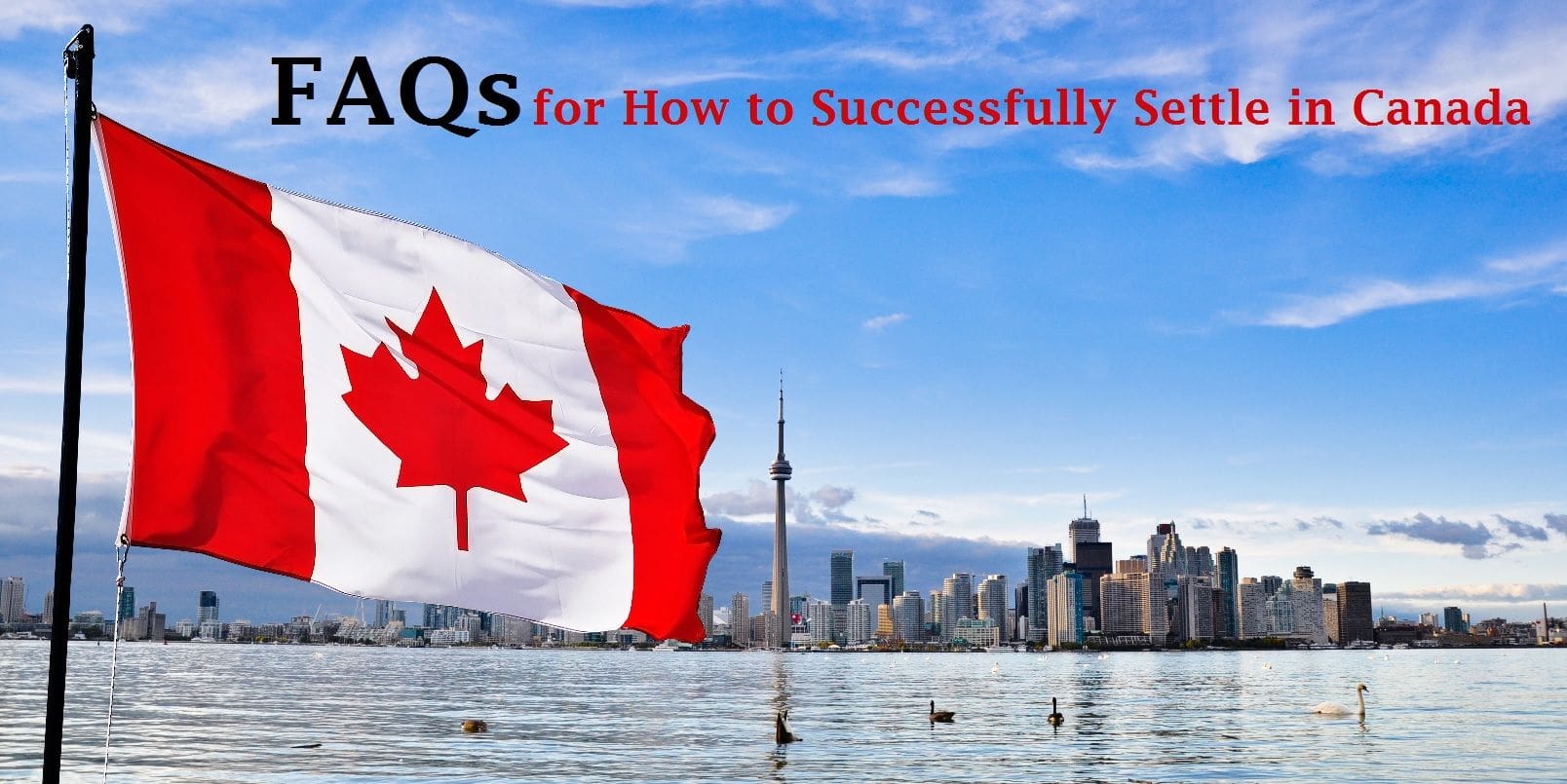FAQs for How to Successfully Settle in Canada
FAQs – How to Successfully Settle in Canada
In this article, I will address a few popular questions and answers for how to successfully settle in Canada and some important information to consider after gaining permanent residency in Canada. After receiving permanent residency in Canada and trying to settle here permanently, it may be confusing or unclear on how to go forward and establish yourself in your new home. If you feel as though you would be eligible to apply for Permanent Residency in Canada, I suggest you read our article on “The Basics of Permanent Residency in Canada” before reading this question and answer article. The intention of this article is meant to clarify any misunderstanding or confusion with regards to how to successfully settle in Canada.
Q: What services are available to me once I settle in Canada?
A: Thankfully, in Canada, there are several different services and organizations that have been created to provide assistance and help for newcomers to Canada. These services and organizations are different based on the province or territory and more specifically the city that you decide to reside in. There are many resources available on the Citizenship and Immigration Canada (CIC) website that will help you find complete listings based on the province or territory you decide to reside in.
Q: What exactly do I need to begin working in Canada?
A: The most important document that you will need in order to work in Canada is a Social Insurance Number (SIN). Without one, you will not be able to work legally in Canada. It is essential that you apply for a SIN once you arrive and land in Canada. Additionally, it is also highly recommended to have an updated copy of your resume in either English or French. English and French are Canada’s two official languages. Along with your resume, you may also want to get your educational credentials assessed by obtaining an Educational Credential Assessment, also referred to as an ECA. This assessment is intended to show that your educational credential equate to a Canadian standard.
Q: I’m not entirely sure where to live in Canada. How can I determine this?
A: This is completely understandable as Canada is a very large and diverse country. With its diversity, there is also an enormous amount of cultures, communities and traditions that compliment a variety of people’s lifestyles. In order to determine where you should live in Canada, it is always advisable to research different areas of Canada. You may want to start by looking at Canada’s provinces and territories. In total, Canada has ten provinces and three territories. By looking at these different provinces and territories, you will realize whether the province or territory suits your lifestyle. Additionally, it is always important to research whether there are employment opportunities in these places. Conclusively, it is also important to recognize the cost of living in these areas as well.
Q: I have minor children that have arrived in Canada with me. How do I begin the process of enrolling them in school?
A: In Canada, education is highly regarded and it is required by law that all children that fall between the ages of 4 and 16 to 18 years of age attend school. This law entirely depends on the province or territory that you reside in; however, generally this is the required age group. It is important to note that the academic school year in Canada begins in September and ends in June. Therefore, with these dates in mind, it is important to register your children as early as February before the school year starts in September. Keep in mind, school boards differ based on region. Therefore, you must contact your local school board in order to find out more information and to register your children.
Q: How to I obtain health care in Canada for my family and me?
A: Once you arrive in Canada as a permanent resident, it may take up to three months before you may receive public health insurance coverage in some provinces and territories. Luckily, in Canada, all provinces and territories have a public health insurance plan which covers basic medical needs for its Canadian citizens and permanent residents. It is essential that, in order to receive health care in Canada for you and your family, you must apply for health care once you arrive in Canada. Another option, while you wait for the public health insurance plan to begin, is to purchase private health insurance from a reputable insurance company for peace of mind in case any emergency happens.
Q: How do I now apply for Canadian Citizenship?
A: There are several eligibility requirements you must meet in order to become a Canadian citizen. One of the most important requirements is the residency requirement. In order to become a Canadian citizen, you must have resided in Canada for a minimum of 1,460 days which equates to a total of four years. If you have not lived in Canada for this required amount of time, you will not be able to apply for Canadian citizenship.
Contact Akrami & Associates
Should you have any further questions or feel confused or unclear about how to successfully settle in Canada, it is important to talk about any questions you may have and discuss your concerns. By talking to immigration professionals about your concerns, this will ease your worries and assist with the application process. Many immigration applications are difficult to pursue on your own and it is highly recommended that you seek out professional and experienced help before attempting to apply. Here, at Akrami & Associates, we work and have experience with many different immigration issues. We have helped many of our clients obtain permanent residency in Canada and are now successfully settling themselves in Canada. If you believe that you may be eligible for permanent residency in Canada, please feel free to contact Akrami & Associates at our office at 416-477-2545 for more information or if you would like to book a consultation with an immigration professional for more advice.
With Akrami & Associates, there is always a way!
Latest Immigrations News

December 5, 2025
THE ULTIMATE GUIDE TO HUMANITARIAN & COMPASSIONATE (H&C) APPLICATIONS IN CANADA
THE ULTIMATE GUIDE TO HUMANITARIAN & COMPASSIONATE (H&C) APPLICATIONS IN CANADA Understanding When, Why, and How to Apply for Permanent Residence on Humanitarian Grounds What Is an H&C Application? A Humanitarian and Compassionate (H&C) application is a last-resort pathway for individuals who are in Canada and do not [...]

September 11, 2025
Canada Super Visa: Step-by-Step Guide for Parents and Grandparents
For many Canadian citizens and permanent residents, bringing parents or grandparents to Canada for extended visits is more than just a wish, it’s a heartfelt need. While most people first consider the traditional visitor visa, there is another option designed specifically for family reunification: Super Visa applications. [...]

August 23, 2025
Intra-Company Transfer (ICT) Work Permit, Your Complete Guide to Working in Canada
For multinational companies, moving key talent across borders is often essential for growth and operational success. The Intra-Company Transfer (ICT) Work Permit provides a streamlined pathway to bring experienced employees to Canada without the time-consuming Labour Market Impact Assessment (LMIA) process. For foreign professionals, it’s more than [...]

Book a Conslutation
One of our Representatives will
assist you with your matter. Book Now!
Click here

Call us for
more Information
+1-416-477-2545
Toll Free: 1-877-820-7121
Click here

Write Us (Online Form)
Complete our form and one of our
Representatives will contact you.
Click here
Subscribe To Our Newsletter


